The biggest box office hits and misses of 2019
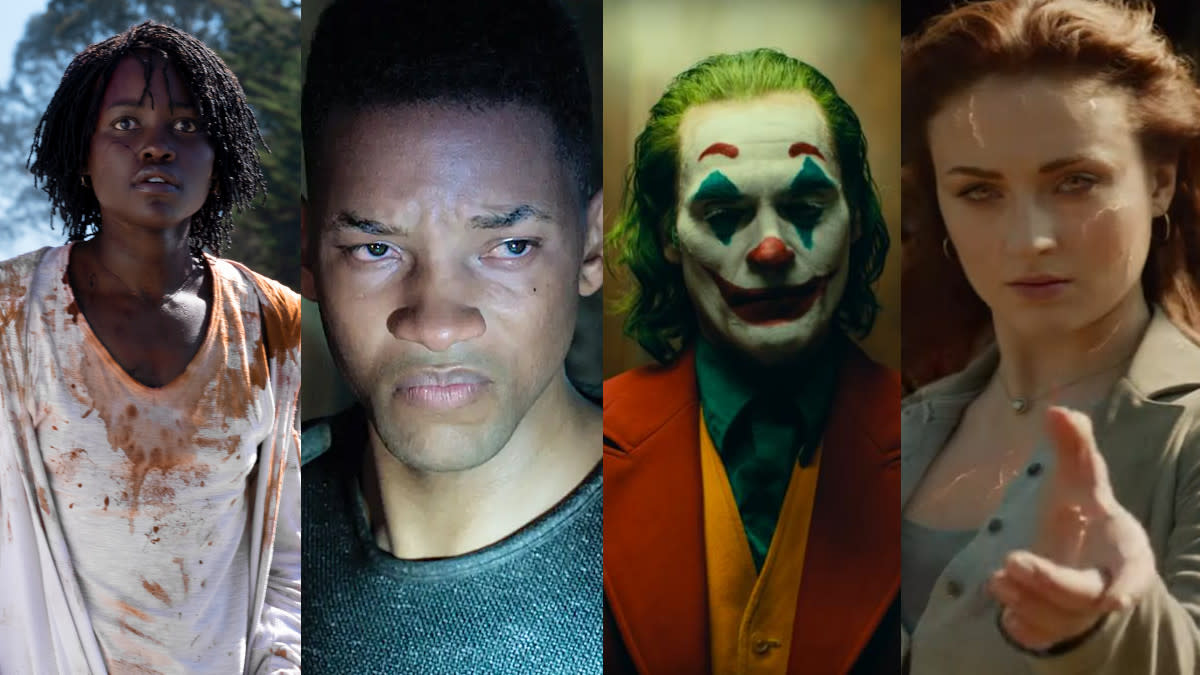
We’re firmly in the post mortem period now for 2019 at the cinema, with Star Wars and Cats — in all of its furry insanity — set to wage the final box office duel before the big movers and shakers of the year are out of the way.
With that in mind, it’s time to take a look back at the last 12 months and decide on the biggest winners and losers. The dominance of superheroes and comic book movies has, of course, continued, but not every spandex-themed story flew as high as it would have liked this year.
Elsewhere, adaptations of hit books floundered, A-list ensemble casts struggled to make an impact at the multiplex and a new horror maestro cemented his place in the pantheon of commercially successful and artistically rich genre filmmakers.
Read more: Winners and losers of 2018 at the box office
Let’s take a look at the biggest hits and the most dismal flops...
HIT — Avengers: Endgame
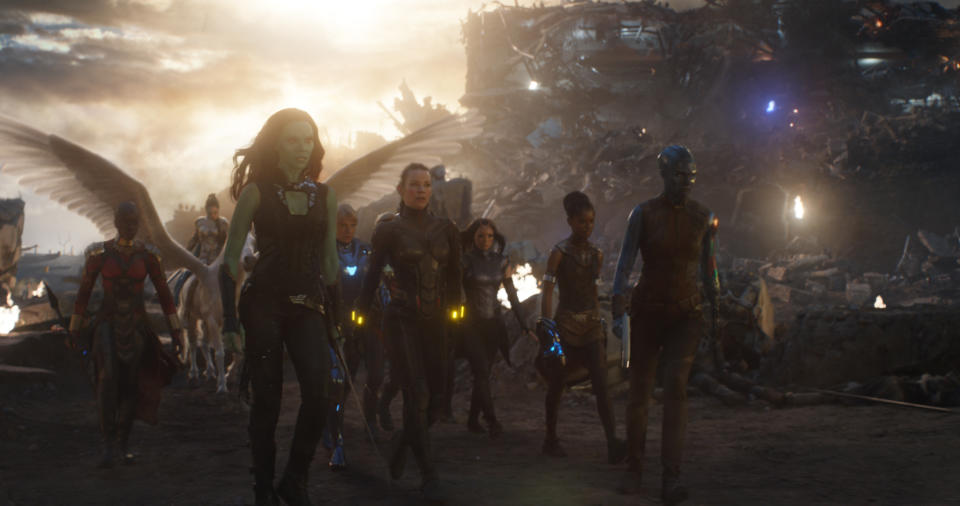
Budget: $356m (£277m)
Box Office: $2.8bn (£2.1bn)
Well, it’s the highest-grossing movie of all time, so it was going to make this list. It’s also one of the most expensive movies ever made but, when you’re knocking on the door of three billion dollars at the global box office, you can get away with extravagant spending.
Marvel brought a decade of superhero storytelling to a close with delightful flair and epic scale, managing to produce a rare blockbuster that satisfied just about everyone.
MISS — Dark Phoenix

Budget: $200m (£150m)
Box Office: $252m (£189m)
Billed as something of a swansong for the X-Men franchise before the characters inevitably pop up in the MCU, it’s fair to say Dark Phoenix didn’t connect with audiences. It got rather mangled in the Disney-Fox merger story and wasn’t exciting enough to get bums on seats.
When Disney announced the Fox studio had run up a $170m (£128) loss in the third quarter, they suggested Dark Phoenix was a big part of that figure.
HIT — Joker
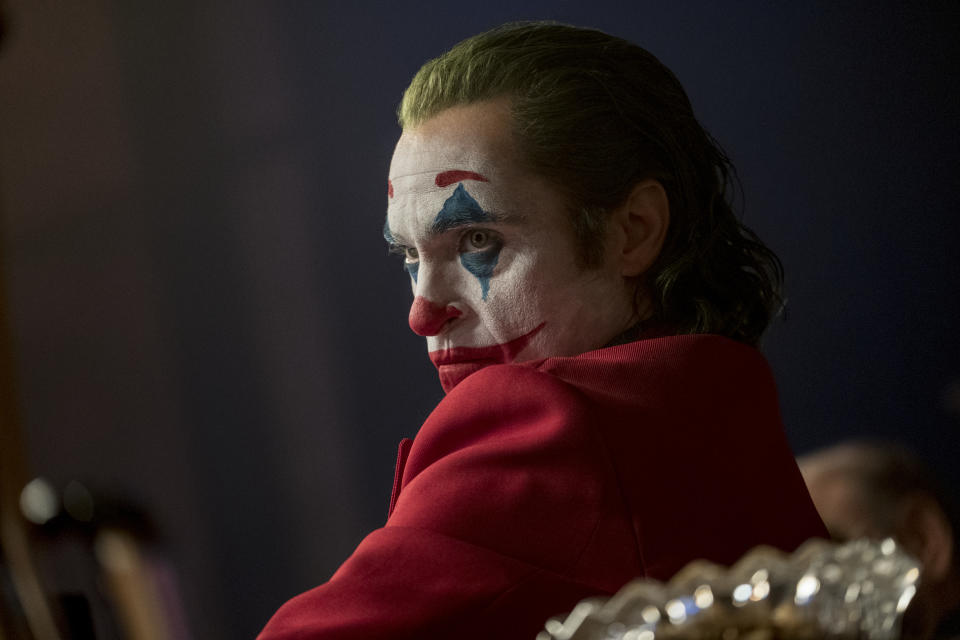
Budget: $62.5m (£46.9m)
Box Office: $1.06bn (£795m)
It’s divisive for many, but there’s no denying Joker’s supremacy at the box office. Todd Phillips directed a visually stripped-down comic book movie, helped by a gritty Joaquin Phoenix performance. The result was a movie that crossed the billion-dollar mark on a relatively low budget, ensuring that the film is now the most profitable comic book movie ever made. Talk of a Joker sequel is persistent, but Todd Phillips keeps saying it’s not happening.
MISS — Missing Link
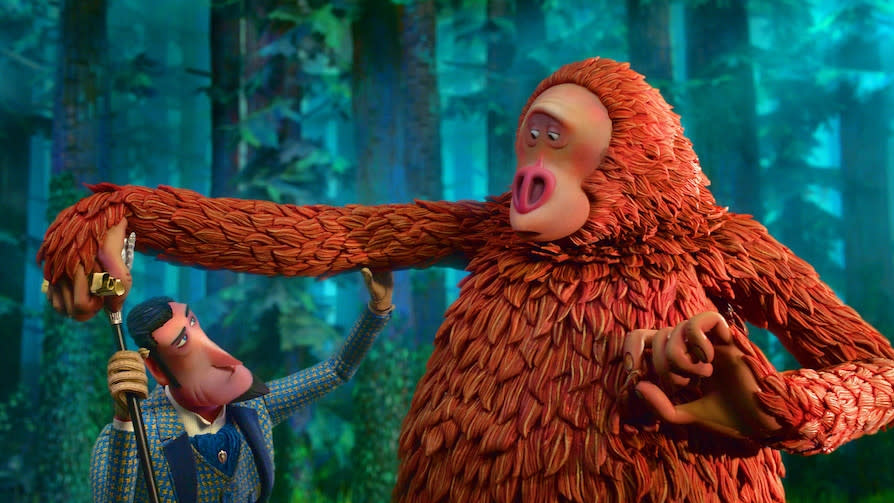
Budget: $100m (£75m)
Box Office: $26.2m (£19.6m)
Laika certainly rolled the dice with this ambitious stop-motion animated tale, which really pushed the limits of the medium. It’s the charming tale of an English explorer helping a Sasquatch get to the home of his Yeti cousins in the Himalayas.
Despite the goodwill around the Laika brand and the eye-catching visual style, nobody went to see this, leaving it as a major box office bomb.
HIT — The Lion King
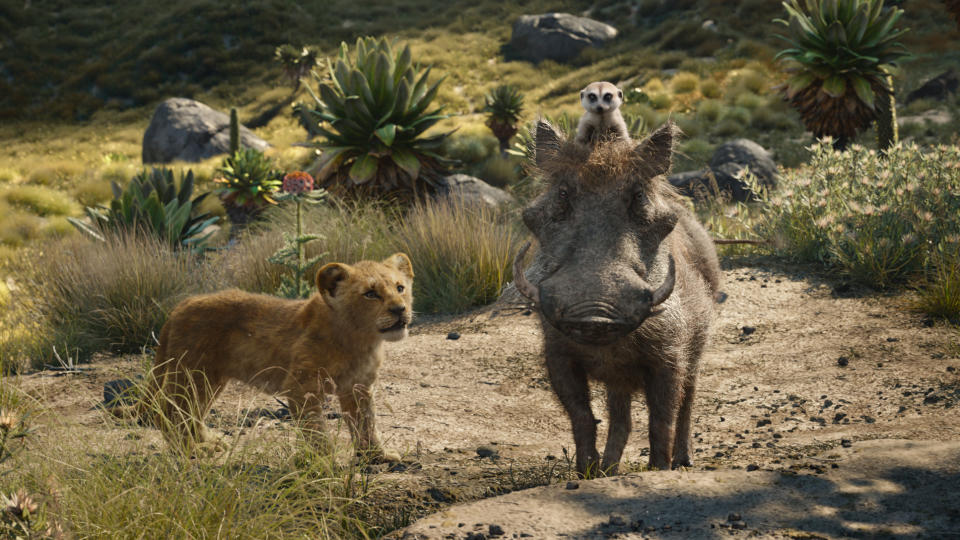
Budget: $260m (£195m)
Box Office: $1.66bn (£1.24bn)
It was something of a mixed bag on the Disney live-action front this year, with Dumbo failing to soar high enough, but Aladdin perhaps unexpectedly crossing the billion-dollar mark. The real success, though, came with Jon Favreau’s photoreal CGI take on The Lion King.
Reviews were somewhat mixed, but audiences flocked to the cinemas and it’s the most successful reimagining of a Disney animated classic to date.
MISS — Gemini Man
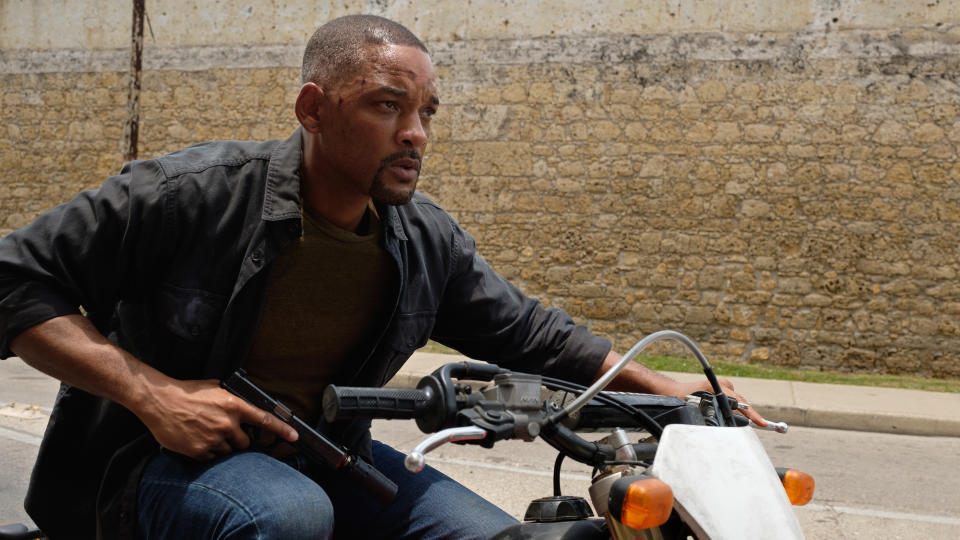
Budget: $138m (£104m)
Box Office: $173m (£130m)
Ang Lee pulled out all the stops for Gemini Man, shooting in an enhanced frame rate of 120fps in order to craft a more dynamic, pin-sharp image for his action-thriller. Will Smith of today takes on Will Smith of the 1990s through the miracle of digital de-aging.
There’s a lot going on here, but it seems Smith can’t open a movie in the way he used to, struggling to get this one over the line in terms of profitability. Audiences simply weren’t bothered.
HIT — Downton Abbey

Budget: $20m (£15m)
Box Office: $189m (£144m)
Almost from the moment Downton Abbey came to an end on ITV in 2015, talk of a feature film follow-up had been brewing. This year, it finally arrived, using a visit from King George V to Downton as the springboard for a number of different narratives, spotlighting various members of the beloved ensemble cast.
Mixed reviews didn’t matter because fans flocked to the cinema to see the story continue. Unsurprisingly, work on a Downton Abbey sequel is already underway.
MISS — Hellboy

Budget: $50m (£38.2m)
Box Office: $44.7m (£34.1m)
One day, there will be an explosive story written about the behind-the-scenes tale of the Hellboy reboot. With Brit horror specialist Neil Marshall behind the camera and David Harbour painting himself red for an impressive transformation in front of it, this is a very adult and very sweary take on Mike Mignola’s comic book creation.
It lacked the heart and soul that powered the two Guillermo del Toro movies and the reviews were poisonous. Audiences were similarly unmoved, dashing any suggestion of a new lease of life for the franchise.
HIT — Us
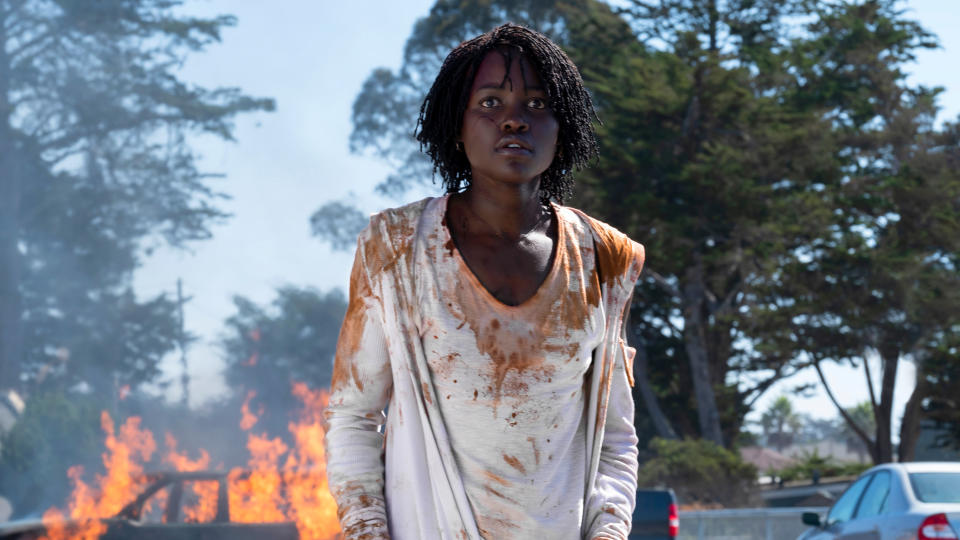
Budget: $20m (£15m)
Box Office: $255m (£195m)
Jordan Peele delivered one of the best movies of the decade with Get Out in 2017, piling the pressure on whatever he did next. Us pretty much cements Peele as a new maestro of horror, weaving a devious and intelligent tale of doppelgangers, laced with incisive social commentary about modern America.
Lupita Nyong’o’s exceptional double performance seems set for an Oscar nod and the movie scored a huge box office haul, with its opening weekend total second only to Avatar in terms of original live-action movies.
MISS — The Goldfinch
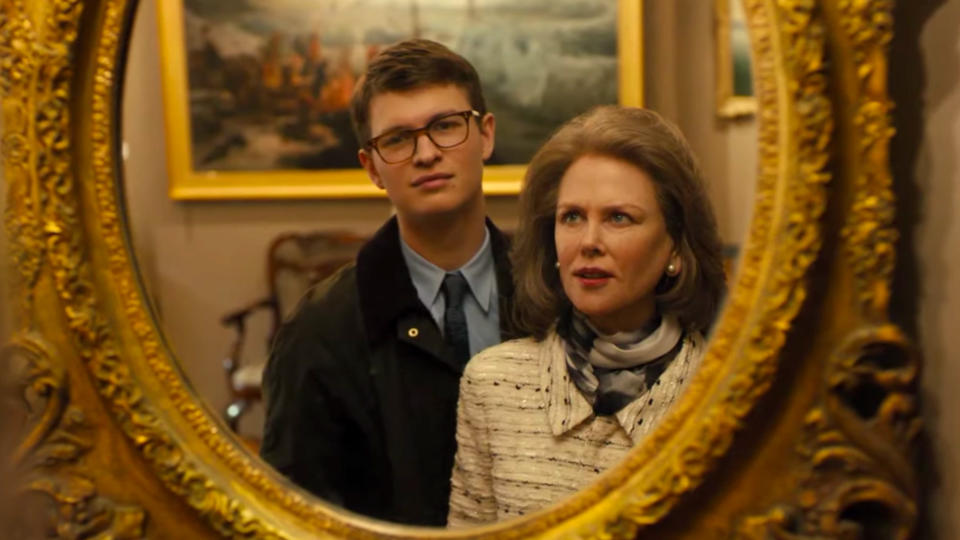
Budget: $45m (£34.3m)
Box Office: $9.9m (£7.6m)
Donna Tartt’s novel The Goldfinch won a Pulitzer Prize in 2014 and remains a widely acclaimed work of literature. As with any successful book, Hollywood came calling and the result was this movie, in which Ansel Elgort plays the art dealer protagonist.
It’s fair to say that the story of the novel didn’t really translate to the big screen and the film promptly fell on its face at the multiplex. Reports suggest that Warner Bros and Amazon could have lost as much as $50m (£38.2m) as a result of the film’s status as a box office flop.

 Yahoo Movies
Yahoo Movies 
